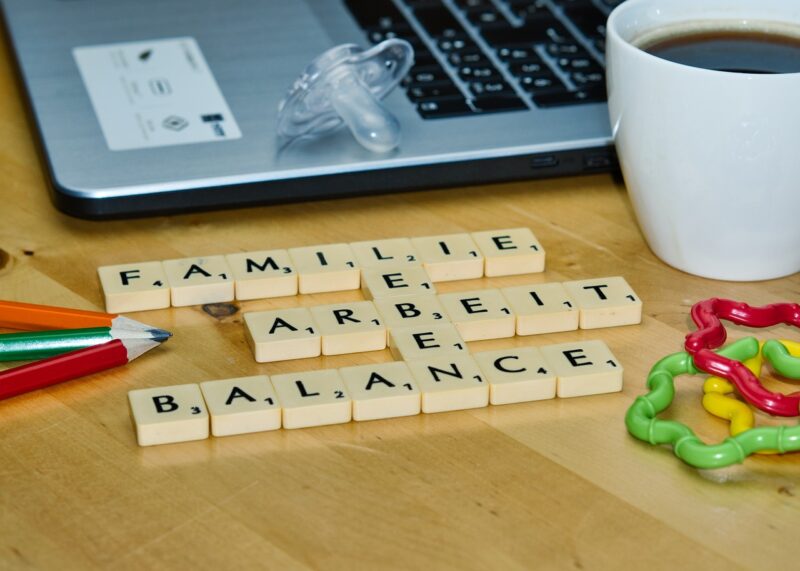
In today’s fast-paced world, achieving a balance between productivity and relaxation is not just a luxury; it has become a necessity. As we increasingly strive to meet demanding professional goals and personal aspirations, the importance of downtime is often overlooked. Learning how to harmonize productivity with relaxation can lead to increased efficiency, reduced stress, and an overall enhanced quality of life.
1. Understanding the Importance of Balance
The phrase “work-life balance” has become synonymous with overall well-being. While productivity is crucial in both personal and professional realms, rest and relaxation are equally important. Here are key reasons why finding this balance matters:
- Enhanced Focus: Taking regular breaks increases focus, as the brain needs rest to function optimally. Continuous work leads to cognitive fatigue which can diminish productivity over time.
- Stress Reduction: Balancing productivity with relaxation can help mitigate stress levels. It’s essential to recharge in order to tackle work tasks effectively and maintain emotional health.
- Increased Creativity: Downtime fosters creativity. Many people find their best ideas come during relaxation rather than intense work periods, revealing the power of the subconscious mind at rest.
Ultimately, the goal is not merely working harder but working smarter, which requires a dedicated approach to ensuring balanced time allocation for work and leisure.
2. Setting Clear Boundaries
One prevalent challenge in maintaining a work-lifestyle balance is the blurred lines between personal time and work commitments, especially with remote work becoming more common. Setting clear boundaries can help:
- Designate Work Hours: Define your working hours and communicate them with colleagues, friends, and family. This way, they’ll understand when you are unavailable and respect your personal time.
- Create a Dedicated Workspace: If working from home, establish a specific workspace to signal when you are in ‘work mode’ versus ‘relaxation mode.’ This physical division aids in mental separation between work and leisure.
- Avoid Multitasking: Focusing on one task at a time can boost productivity and decrease feelings of being overwhelmed, leading to more effective work hours and guilt-free relaxation later on.
Establishing boundaries enables you to disconnect from work when necessary, promoting intentional relaxation time.
3. Prioritizing Tasks Effectively
Effective time management is a cornerstone of balancing productivity with relaxation. Here’s how to prioritize effectively:
- Use the Eisenhower Matrix: This powerful tool helps you categorize tasks based on urgency and importance. By focusing on what truly matters, you can allocate time for pressing matters while also allowing for relaxation.
- Plan Your Day the Night Before: Taking a few minutes before bed to outline priorities for the next day can help reduce anxiety and grant peace of mind, making it easier to switch off and relax.
- Set Breaks Easily: Implement techniques such as the Pomodoro technique, where you work for 25 minutes followed by a 5-minute break. This established rhythm encourages both productivity and regular relaxation intervals and keeps energy levels high throughout the day.
Prioritization can enhance efficiency and help create a space for relaxation intervals without guilt.
4. Incorporating Mindfulness and Relaxation Techniques
Incorporating mindfulness practices into your routine can foster relaxation and improve overall productivity:
- Practice Deep Breathing: Spending just a few minutes focusing on your breath can calm the mind and lower stress levels, leading to improved focus when returning to work.
- Engage in Yoga or Stretching: Integrating physical activity into your day balances the body and mind while breaking the tension that accumulates during work periods.
- Embrace Time in Nature: Scientific studies show that nature has a healing effect on the mind. Find time to stroll or relax outdoors, allowing nature to recharge your mental state.
These techniques not only promote relaxation but may also clarify thoughts, enhancing productivity once you return to your tasks.
5. Scheduling Downtime as You Would Work
Just as you schedule work tasks, intentionally scheduling moments for relaxation is crucial:
- Block Time for Leisure Activities: Whether it’s reading, engaging in a hobby, or simply meditating, commit time to these activities as you would for work-related tasks. It can be restorative and fulfilling.
- Plan Relaxation Days: Every few weeks, designate a day purely for relaxation activities, allowing you to break free from the usual work routine and recharge fully.
- Take Short Breaks During Work Hours: Even during busy workdays, short, scheduled breaks allow for mental recovery, fostering clearer thinking and higher productivity in subsequent tasks.
Approaching relaxation with the same seriousness as productivity will ensure you integrate self-care into your life as a priority rather than an afterthought.
6. Embracing the Power of Saying No
Sometimes, to maintain balance, it’s essential to say no to extra work commitments or social engagements that infringe upon your personal time:
- Assess Your Capacity: Before accepting new obligations, evaluate your existing workload and personal commitments. If you foresee it affecting your relaxation time, it’s reasonable to decline politely.
- Communicate Openly: When declining, be truthful. Most people will respect your commitment to maintaining balance, and it may also inspire them to prioritize their own well-being.
- Focus on Quality Over Quantity: Investing time in fewer tasks, whether personal or work-related, allows you to commit fully and reap the rewards while still making space for relaxation.
By embracing the power of no, you create more room in your life for what truly matters, including relaxation and self-care.
Conclusion
Balancing productivity with relaxation is not only achievable but essential for a fulfilling life. By setting boundaries, prioritizing tasks, incorporating mindfulness, and embracing self-care strategies, you can cultivate a lifestyle that encourages both efficient work and restorative leisure. Remember, the goal is to thrive, and that means giving your mind and body the time they need to recharge. Start today by implementing these strategies, and experience the benefits of enhanced productivity alongside well-deserved relaxation in your life.







